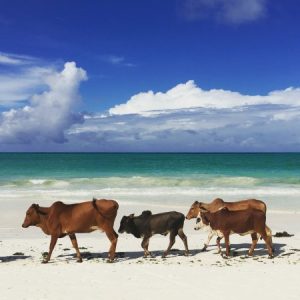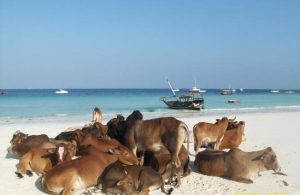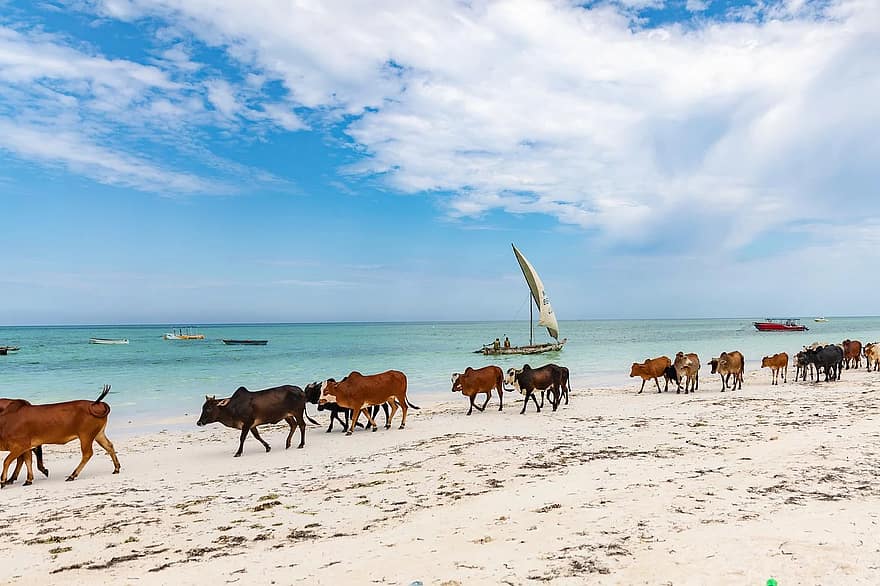The dairy industry is among the important components of the livestock sector in Zanzibar in terms of source of animal protein, income, and employment. In Zanzibar, the lack of grazing land, inadequate spaces for waste management, and urbanization created a need to find a better way of establishing dairy farming intervention to serve poor families within townships.
The researchers from Sokoine University of Agriculture Professor Said Hemed Mbaga from the Department of Animal, Aquaculture, and Range Sciences, Dr. Rogers Andrew Lumenyela from the Institute of Rural Development Planning (IRDP), and Dr. Jean-Claude Bizimana from the Department of Agricultural Economics, Texas A&M University, College Station TX conducted reported in the economic and nutrition impact of communal dairy cattle farming system in Zanzibar.
The introduction of a communal cowshed farming system is expected to increase milk production and productivity and waste management through a group-based production and marketing model because of reduced transaction costs and increased economies of scale which in turn will improve income and family nutrition.
A farm-level economic and nutrition simulation model (FARMSIM) was used to evaluate the economic and nutritional impacts of the communal cowshed farming system relative to the sole dairy farming system. Results show that the annual average profit under the communal cowshed farming system was greater than sole based system across both islands.
The nutrition results show that both the sole dairy farming households and communal cowshed scenarios did not meet the minimum daily requirements for calories, proteins, iron, and vitamin A but were insufficient for calcium and fat. However, sole farmers were better off in terms of the quantity of food intake in both islands. Moreover, Unguja Island was found to be better off in terms of economic indicators while Pemba Island farmers were relatively better off in terms of food intake status across both farming systems.
From the discussions, it is concluded that the communal cowshed farming system has enlightened farmers into business farming orientation but resulted into decreased milk intake. It is recommended, that any intervention must be integrated kind of intervention to consider both economic and nutrition improvement.
 For more information visit;
For more information visit;
Lumenyela, R. A., Bizimana, J. C., & Mbaga, S. H. (2023). Economic and Nutrition Impacts of Communal Cowshed Dairy Cattle Farming System in Zanzibar, Tanzania. In Egerton University International Conference.

The Department of Animal, Aquaculture, and Range Sciences
The College of Agriculture, Sokoine University of Agriculture
Share this page




